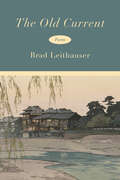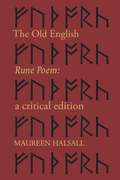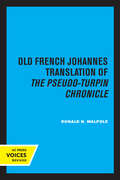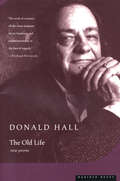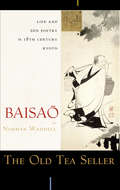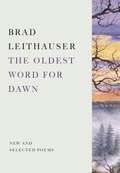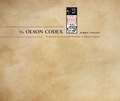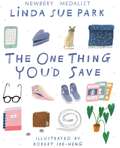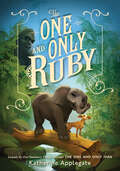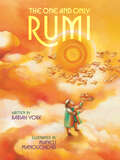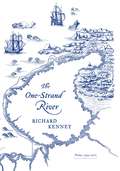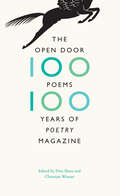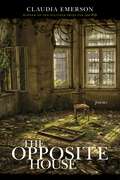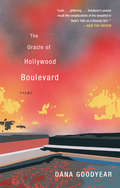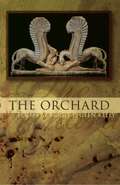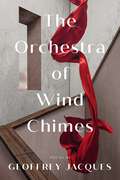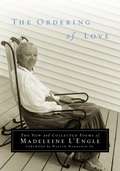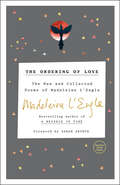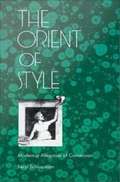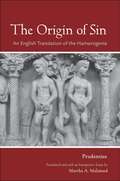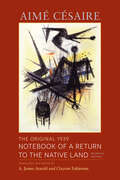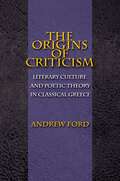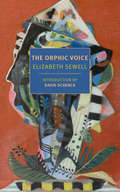- Table View
- List View
The Old Current: Poems
by Brad LeithauserMacArthur Fellowship–winning poet Brad Leithauser returns with his first new collection in more than a decade, a collection that recalls the delicacy and intimacy of his early, award-winning volumes, and embraces the wisdom of age.As snappy as a dinner jacket&’s red silk lining, as appealing as a piano interlude in jazz, Brad Leithauser&’s robust felicity is a balm in grim times. It&’s also the perfect vehicle for nostalgia, regret, and surprise, forces that animate his first collection in more than a decade. By turns laugh-out-loud funny and deeply thoughtful, this collection balances wisdom and practicality, as with deft care Leithauser easily, often unexpectedly, juggles off-rhymes and old forms and new. The book unfolds like a five-act play, moving from chattier poems to dramatic denouements. In the collection&’s two &“Darker&” sections, we meet folks learning to say goodbye, from a three-year-old&’s cry &“I love you so loud&” (&“A Young Farewell&”) to a reckoning with words formed &“Forty-Five Years On.&” Time presses in continually. In &“Abroad&” and &“At Home,&” the author shows us himself, in younger form: sixty-six, then twenty-seven, catapulted back in memory to Tokyo by a single bite of food (&“The Old Current&”). Then, eight, and awed to remember the beauty of a lone jet overhead. With Updikean wordplay he recalls: &“Porch steps, sunset; a warm, gathering gloom. / Behind me, five lives: two parents plus the three / Brothers with whom I share my room&” (&“A Single Flight&”). As Leithauser takes the measure of a world expanding behind him, he manages to become weightless, freer, wild again. He also refuses to give up second chances. In the &“Lighter&” interlude, we chance upon &“Icarus and His Kid Brother.&” We&’re treated to dactyls and lively quatrains, a sloppy kiss that&’s not quite bliss, musings on sobriety, and what comes to pass when &“life turns lickerish and liquory&” (&“Double Dactyls,&” &“Six Quatrains,&” &“The Muses,&” and &“Kisses After Novocaine&”). The energies yoked within Leithauser&’s formalism overflow formality. Often elegiac and yet packed with humor, contemplative, consoling, and informed by the soul of a storyteller, Brad Leithauser&’s latest book of poetry is a warming, enrapturing read that returns us to the ebbs and flows of life&’s shores. &“I&’m sixty-six,&” the author writes, &“and could anything / Reliably be more heartening / Than stray hints that life&’s brightest events. / Are, however far-flung, strung / Along a long old current?&”
The Old English Rune Poem: A Critical Edition (McMaster Old English Studies and Texts)
by Maureen HalsallThis critical edition provides unique access to a work which has challenged scholars and students alike. The book is the first to deal fully with the poem as literature and to supply the runic background necessary for an understanding of the raw materials with which the poet was working. The introduction offers a thorough discussion of the origin, development, and uses of runes before proceeding to the close examination of text, language, literary sources, style, and themes of the poem. Following the text and translation of the poem proper, detailed explanatory notes pay particular attention to the background of each individual rune and rune name, and the appendixes provide analogous material to assist in setting the poet's achievement into the runic context. Since many of the sources necessary for an accurate assessement of the Old English Rune Poem are written in foreign or dead languages, modern English translations have been provided throughout to ensure that the poem will be accessible to students as well as to professional medievalists. (McMaster Old English Studies and Texts 2)
The Old French Johannes Translation of the Pseudo-Turpin Chronicle: A Critical Edition
by Ronald N. WalpoleThis title is part of UC Press's Voices Revived program, which commemorates University of California Press’s mission to seek out and cultivate the brightest minds and give them voice, reach, and impact. Drawing on a backlist dating to 1893, Voices Revived makes high-quality, peer-reviewed scholarship accessible once again using print-on-demand technology. This title was originally published in 1976.
The Old Life: New Poems
by Donald HallFor nearly forty years, Donald Hall has stood in the front rank of American poets. The title poem, an autobiographical sequence, takes Hall from his boyhood to his growing acquaintance with poets--seniors like Robert Frost and contemporaries like Robert Bly. It sees him growing into manhood, fatherhood, grandfatherhood, and a happy second marriage. When his life inevitably moves into vicissitude, even tragedy, he will tell the dreadful truth about himself and the challenges of his time on earth.
The Old Tea Seller: Life and Zen Poetry in 18th Century Kyoto
by BaisaoPoet, Zen Buddhist priest, renowned thinker, and seller of tea — Baisao was all of these things, as well as being a bit of an eccentric. Known to carry large wicker baskets filled with tea utensils through the streets and surrounding hills of Japan's capital, Baisao set up shop wherever he ended up and brewed tea for those who came to enjoy the scenery with him. Establishing a quiet, simple life, Baisao spent his final years composing poetry, brewing tea, and teaching Zen, in the process becoming a well–loved figure. These poems, memoirs, and letters tell us more about this endearing person and trace his long life's profound spiritual journey. This comprehensive translation includes nearly all of Baisao's writings, giving us a deep look at this remarkable man.
The Oldest Word for Dawn: New and Selected Poems
by Brad LeithauserFrom one of our most universally admired poets: a generous selection from his five acclaimed books of poetry, and an outstanding group of new poems. From the outset, Brad Leithauser has displayed a venturesome taste for quirky patterns, innovative designs sprung loose from traditional forms. In The Oldest Word for Dawn, we encounter a sonnet in one-syllable lines ("Post-Coitum Tristesse"), a clanging rhyme-mad tribute to the music of Tin Pan Alley ("A Good List"), intricate buried rhyme schemes ("In Minako Wada's House"), autobiography spun through parodies of Frost and Keats and Omar Khayyám ("Two Summer Jobs"). In a new poem, "Earlier," the poet investigates a kind of paradox: What is the oldest word for dawn in any language? The pursuit ultimately descends into the roots of speech, the genesis of art. "Earlier" is part of a sequence devoted to prehistoric themes: the cave paintings of Altamira, the disappearance of the Neanderthals, the poet's journey with his teenage daughter to excavate a triceratops skeleton in Montana . . . The author of six novels as well, Leithauser not surprisingly brings to his verse a flair for compelling narrative: a fateful romantic encounter on a streetcar ("1944: Purple Heart"); the mesmerizing arrival of television in a quiet Detroit neighborhood ("Not Lunar Exactly"); two boys heedlessly, joyfully bidding permanent farewell to a beloved sister ("Emigrant's Story"). The Oldest Word for Dawn reveals Brad Leithauser as a poet of surpassing tenderness and exactitude, a poet whose work, at sixty, fulfills the promise noted by James Merrill on the publication of his first book: "The observations glisten, the feelings ring true. These poems by a young, unostentatious craftsman are made to something very like perfection. No one should overlook them."
The Olson Codex: Projective Verse and the Problem of Mayan Glyphs (Recencies Series: Research and Recovery in Twentieth-Century American Poetics)
by Dennis TedlockThis exploration of the influence of Mayan hieroglyphics on the great American poet Charles Olson (1910–1970) is an important document in the history of New World verse. Olson spent six months in the Yucatan in 1951 studying Maya culture and language, an interlude that has been largely overlooked by students of his work. Like Olson and Robert Creeley, Olson&’s disciple who published Olson&’s letters from Mexico, the poet Dennis Tedlock taught at the University of Buffalo. Unlike his two predecessors, Tedlock was also a scholar of Maya language and culture, renowned for his translations from indigenous American languages, notably the Popul Vuh, the Maya creation story. In The Olson Codex, Tedlock describes and examines Olson&’s efforts to decipher Mayan hieroglyphics, giving Olson&’s work in Mexico the place it deserves within twentieth-century poetry and poetics.
The One Thing You'd Save
by Linda Sue ParkIf your house were on fire, what one thing would you save? Newbery Medalist Linda Sue Park explores different answers to this provocative question in linked poems that capture the diverse voices of a middle school class. Illustrated with black-and-white art. <P><P>When a teacher asks her class what one thing they would save in an emergency, some students know the answer right away. Others come to their decisions more slowly. And some change their minds when they hear their classmates’ responses. A lively dialog ignites as the students discover unexpected facets of one another—and themselves. With her ear for authentic dialog and knowledge of tweens’ priorities and emotions, Linda Sue Park brings the varied voices of an inclusive classroom to life through carefully honed, engaging, and instantly accessible verse.
The One and Only Ruby
by Katherine ApplegateFrom beloved powerhouse author Katherine Applegate comes The One and Only Ruby, starring the adorable baby elephant from the Newbery Medal-winning modern classic The One and Only Ivan and its bestselling sequel, The One and Only Bob. Ruby’s story picks up a few months after the events of The One and Only Bob. Now living in a wildlife sanctuary, Ruby’s caretaker from the elephant orphanage in Africa where she grew up is visiting. Seeing him again brings back a flood of memories both happy and sad of her life before the circus, and she recounts the time she spent in the African savannah to Ivan and Bob.In the timeless way that only Katherine Applegate could craft, this highly anticipated novel in verse is the perfect mix of heartfelt and humorous, poignant and sweet. Artist Patricia Castelao returns to the world of Ivan and his friends with gorgeous black-and-white interior illustrations to complete the story.The One and Only Ruby features first-person narrative; author's use of literary devices (personification, imagery); and story elements (plot, character development, perspective).This middle grade novel is an excellent choice for tween readers in grades 5 to 8, for independent reading, homeschooling, and sharing in the classroom.Don’t miss the film adaptation of The One and Only Ivan, now streaming on Disney+!
The One and Only Rumi
by Rabiah YorkThe inspiring story of Rumi&’s journey from a young refugee to a renowned poet shows how his childhood helped shape his poetry.Young Muhammad adores his home, and he loves waking up each day to the sound of birds singing. His father encourages him to keep singing through happy days as well as sad—just like the birds. And there are indeed sad days ahead when his family is forced to flee from Genghis Khan&’s army, becoming refugees. As they travel, Muhammad takes many lessons from nature, and his positivity and spirit of largess lights the way.This moving story based on the life of the beloved thirteenth-century poet Rumi celebrates showing love to everyone and offers a beautiful message of hope in troubled times.
The One-Strand River: Poems, 1994-2007
by Richard KenneyFourteen years after his last book of poems, we have a glorious new volume from Richard Kenney, who has been hailed byThe New York Review of Booksas “one of the most gifted and multifaceted and original of American poets. ” InThe One-Strand River, Kenney has tales to tell—of loves, births, and confounding politics—in lively, quicksilver language that surprises at every turn. We meet the poet as a middle-aged husband walking the dog, confiding, “Churlish / thoughts bedevil me, often. Sunshine; girls / half my age; the future; unseen perishing / armies. ” He swings between surreal dawn vistas and the unsettling sight of seventh-grade girls circling his teenage son; between the pleasure of a New Year’s celebration “with Nipperkin” and—striking a note that is rare in contemporary poetry—satirical attack, with an eye on the news of the day. A master of many tones, Kenney recalls a nursery rhyme in the title poem—“Gray goose and gander/ How long have we together?”—and ponders the “one-strand river” that is the sea, with its one encircling shore and its tidal pull on both the landscape and the human heart. Kenney is never a confessional poet, yet we meet a powerful mind here—that of a man who is always responding to provocations seen and unseen, taking pleasure in the possibilities of words themselves, tossing them up into the daily storm of our vexations and our perilous happiness. From the Hardcover edition.
The Open Door: One Hundred Poems, One Hundred Years of Poetry Magazine
by Don Share Christian WimanWhen Harriet Monroe founded Poetry magazine in Chicago in 1912, she began with an image: the Open Door. "May the great poet we are looking for never find it shut, or half-shut, against his ample genius!" For a century, the most important and enduring poets have walked through that door--William Carlos Williams and Wallace Stevens in its first years, Rae Armantrout and Kay Ryan in 2011. And at the same time, Poetry continues to discover the new voices who will be read a century from now. Poetry's archives are incomparable, and to celebrate the magazine's centennial, editors Don Share and Christian Wiman combed them to create a new kind of anthology, energized by the self-imposed limitation to one hundred poems. Rather than attempting to be exhaustive or definitive--or even to offer the most familiar works--they have assembled a collection of poems that, in their juxtaposition, echo across a century of poetry. Adrienne Rich appears alongside Charles Bukowski; poems by Isaac Rosenberg and Randall Jarrell on the two world wars flank a devastating Vietnam War poem by the lesser-known George Starbuck; August Kleinzahler's "The Hereafter" precedes "Prufrock," casting Eliot's masterpiece in a new light. Short extracts from Poetry's letters and criticism punctuate the verse selections, hinting at themes and threads and serving as guides, interlocutors, or dissenting voices. The resulting volume is an anthology like no other, a celebration of idiosyncrasy and invention, a vital monument to an institution that refuses to be static, and, most of all, a book that lovers of poetry will devour, debate, and keep close at hand.
The Opposite House: Poems (Southern Messenger Poets)
by Claudia EmersonWith graceful lines swooping like a bird in flight, Claudia Emerson's newest collection explores the harsh realities of aging and the limitations of the human body, as well as the loneliness, fear, and anger that can accompany us as we live. Keenly observed and beautifully executed, these poems move from the grim façade that hides beauty-prosthetic eyes- to the beautiful scene that conceals violence-a rural retreat. Emerson also considers once common things that are fast becoming obsolete: cursive writing, telephone booths, barbers. At once hopeful and cognizant of all the reasons why humans might despair, these poems echo with remarkable insight into the true nature of life.
The Oracle of Hollywood Boulevard: Poems
by Dana GoodyearPoems about sex, marriage, and the desire for a child from a "scary-cool and edgy-smart" poet (J. D. McClatchy). The frank, raw lyrics of Dana Goodyear's second collection draw on the scenery of Los Angeles--the teenagers, vagrants, pornographers--and the beautiful decay that serves as an insistent reminder to them all. The poems are unsparing but tender, candid but sly, and open to the force of nature on an individual human life. from "Wildfire" We want this. The end to sleeping, the bittersweet arousal, the peeling back, the soft bath in resin, the release. It can't come quick enough, the hot touch that breaks the crust and lets us go. Hear it now: a crackling, as the woods begin to sing alongside the birds.
The Orchard
by Brigit Pegeen KellyRichly allusive, the poems in Brigit Pegeen Kelly's The Orchard evoke elements of myth in distinctive aural and rhythmic patterns. Her poetic strength lies in her ability to cast poems as modern myths and allegories. Propelled by patterned repetitions and lush cadences, the poems move the reader through a landscape where waking and dream consciousness fuse.Brigit Pegeen Kelly teaches creative writing at the University of Illinois at Urbana-Champaign. Her poetry collections are Song (BOA Editions), the 1994 Lamont Poetry Selection of The Academy of American Poets and a finalist for the 1995 Los Angeles Times Book Award, and To the Place of Trumpets, selected by James Merrill for the 1987 Yale Series of Younger Poets Prize.
The Orchard: Song And The Orchard (American Poets Continuum #82.00)
by Brigit Pegeen KellyRichly allusive, the poems in Brigit Pegeen Kelly&’s The Orchard evoke elements of myth in distinctive aural and rhythmic patterns. Her poetic strength lies in her ability to cast poems as modern myths and allegories. Propelled by patterned repetitions and lush cadences, the poems move the reader through a landscape where waking and dream consciousness fuse.Brigit Pegeen Kelly teaches creative writing at the University of Illinois at Urbana-Champaign. Her poetry collections are Song (BOA Editions), the 1994 Lamont Poetry Selection of The Academy of American Poets and a finalist for the 1995 Los Angeles Times Book Award, and To the Place of Trumpets, selected by James Merrill for the 1987 Yale Series of Younger Poets Prize.
The Orchestra of Wind Chimes (Made in Michigan Writers Series)
by Geoffrey JacquesThis powerful collection of poems draws on American and African- American experimental lyric traditions, pushing language and form to their limits. Geoffrey Jacques’s poetry inspires deep thought, taking up themes of music, psychology, and literature. This work embodies the potential of poetry to forge new connections between aesthetic expression and the often onerous facts of human existence. Poems such as "Still Life" and "Detour Ahead" produce a juxtaposition of inspired poetic form and rich, complex realities of life, addressing topics of joy and love, race, class, politics, and the aesthetics of the everyday. With a contemporary and sophisticated tenor, Jacques lends his uniquely moving and provocative perspective to advancing discourse in these critical topics. For all of the social themes they address, these poems equally serve to investigate modes of producing poetry in general. "Ars Poetica," "The Problem of Speech Genres," "The Subject of the Poem," and many others directly challenge traditional notions of form through intentional and intricate reflexive commentary. Through these poems, Jacques has achieved a balance between form and function, allowing readers to embark on a rhythmic journey of expression, language, and human existence.
The Ordering of Love: The New and Collected Poems of Madeleine L'Engle
by Madeleine L'Engle"In a brilliant marriage of myth and manner, histories sacred and profane, prayers of petition and of praise, these poems both articulate and illumine the trouble in the gap in which we live--the gap between human affections and Divine Love. L'Engle is unfailing in her willingness to see through--not around--human suffering, and in so doing announces no final severing of spirit and flesh but an enduring vision of resurrection in that crux, in the cross, in the One in Whom all things meet, continuing." -Scott Cairns, author of Slow Pilgrim and Philokalia: New and Selected Poems. "I love L'Engle's poetry for the way it incarnates not only the great Truths of the faith, but all the little truths of our ordinary existence--our working and playing and loving and fighting and dreaming and idling and all the rest of it--and for the way it shows us that those big and little truths should not, cannot, be separated." -Carolyn Arends, recording artist and author. "Why is L'Engle one of the defining poets of our time? Because when life hurts, she does not shrink from the wounds. She clarifies the murk with hope as we feel the lift of grace." -Calvin Miller, Beeson Divinity School Birmingham, Alabama. "We are, all of us, the richer for this carefully crafted and prayerfully rendered collection." -Phyllis Tickle, Author, The Divine Hours. "Poetry, at least the kind I write, is written out of immediate need; it is written out of pain, joy, and experience too great to be borne until it is ordered into words. And then it is written to be shared." -Madeleine L'Engle. Madeleine L'Engle's writing has always translated the invisible and intricate qualities of love into the patterns and rhythms of visible life. Now, with compelling language and open-hearted vulnerability, The Ordering of Love brings together the exhaustive collection of L'Engle's poetry for the first time. This volume collects nearly 200 of L'Engle's original poems, including eighteen that have never before been published. Reflecting on themes of love, loss, faith, and beauty, The Ordering of Love gives vivid and compelling insight into the language of the heart.
The Ordering of Love: The New and Collected Poems of Madeleine L'Engle
by Madeleine L'EnglePraise for The Ordering of LoveBy Madeleine L'Engle"In a brilliant marriage of myth and manner, histories sacred and profane, prayers of petition and of praise, these poems both articulate and illumine the trouble in the gap in which we live-the gap between human affections and Divine Love. L'Engle is unfailing in her willingness to see through-not around-human suffering, and in so doing announces no final severing of spirit and flesh but an enduring vision of resurrection in that crux, in the cross, in the One in Whom all things meet, continuing." -Scott Cairns, author of Slow Pilgrim and Philokalia: New and Selected Poems"I love L'Engle's poetry for the way it incarnates not only the great Truths of the faith, but all the little truths of our ordinary existence-our working and playing and loving and fighting and dreaming and idling and all the rest of it-and for the way it shows us that those big and little truths should not, cannot, be separated."-Carolyn Arends, recording artist and author"Why is L'Engle one of the defining poets of our time? Because when life hurts, she does not shrink from the wounds. She clarifies the murk with hope as we feel the lift of grace."-Calvin Miller, Beeson Divinity SchoolBirmingham, Alabama"We are, all of us, the richer for this carefully crafted and prayerfully rendered collection."-Phyllis Tickle, Author, The Divine Hours"Poetry, at least the kind I write, is written out of immediate need; it is written out of pain, joy, and experience too great to be borne until it is ordered into words. And then it is written to be shared."-Madeleine L'EngleMadeleine L'Engle's writing has always translated the invisible and intricate qualities of love into the patterns and rhythms of visible life. Now, with compelling language and open-hearted vulnerability, The Ordering of Love brings together the exhaustive collection of L'Engle's poetry for the first time. This volume collects nearly 200 of L'Engle's original poems, including eighteen that have never before been published. Reflecting on themes of love, loss, faith, and beauty, The Ordering of Love gives vivid and compelling insight into the language of the heart.From the Hardcover edition.
The Orient and the Young Romantics
by Andrew WarrenThrough close readings of major poems, this book examines why the second-generation Romantic poets - Byron, Shelley, and Keats - stage so much of their poetry in Eastern or Orientalized settings. It argues that they do so not only to interrogate their own imaginations, but also as a way of criticizing Europe's growing imperialism. For them the Orient is a projection of Europe's own fears and desires. It is therefore a charged setting in which to explore and contest the limits of the age's aesthetics, politics and culture. Being nearly always self-conscious and ironic, the poets' treatment of the Orient becomes itself a twinned criticism of 'Romantic' egotism and the Orientalism practised by earlier generations. The book goes further to claim that poems like Shelley's Revolt of Islam, Byron's 'Eastern' Tales, or even Keats's Lamia anticipate key issues at stake in postcolonial studies more generally.
The Orient of Style: Modernist Allegories of Conversion
by Beryl SchlossmanIn this study of modernist aesthetics, Beryl Schlossman reveals how for such writers as Marcel Proust, Gustave Flaubert, and Charles Baudelaire, the Orient came to symbolize the highest aspirations of literary representation. She demonstrates that through allegory, modernism became a style itself, a style that married the ancient and the modern and that emerged as both a cause and an effect, both an ideal construct and an textual materiality, all symbolized by the Orient--land of style, place of plurality, and site of the coexistence of holy lands. Toward the end of Remembrance of Things Past, the narrator describes the act of creating a work of art as a conversion of sensation into a spiritual equivalent. By means of such allegories of "conversion," Schlossman shows, the modernist artist disappeared within the work of art and left behind the trace of his sublime vocation, a vocation in which he was transformed, in Schlossman's words, "into a kind of priest kneeling at the altar of beauty before the masked divinity of representation. " The author shows how allegory--the representation of the symbolic as something real--was adapted by modernist writers to reflect subjectivity while masking an authorial origin. She reveals how modernist allegory arose, as Walter Benjamin suggests, at the crossroads of history, sociology, economics, urban architecture, and art--providing a kind of map of capitalism--and was produced through the eyes of a melancholic gazing at a "monument of absence. "
The Origin of Sin
by Prudentius Martha A. MalamudAurelius Prudentius Clemens (348–ca. 406) is one of the great Christian Latin writers of late antiquity. Born in northeastern Spain during an era of momentous change for both the Empire and the Christian religion, he was well educated, well connected, and a successful member of the late Roman elite, a man fully engaged with the politics and culture of his times. Prudentius wrote poetry that was deeply influenced by classical writers and in the process he revived the ethical, historical, and political functions of poetry. This aspect of his work was especially valued in the Middle Ages by Christian writers who found themselves similarly drawn to the Classical tradition. Prudentius's Hamartigenia, consisting of a 63-line preface followed by 1,290 lines of dactylic hexameter verse, considers the origin of sin in the universe and its consequences, culminating with a vision of judgment day: the damned are condemned to torture, worms, and flames, while the saved return to a heaven filled with delights, one of which is the pleasure of watching the torments of the damned. As Martha A. Malamud shows in the interpretive essay that accompanies her lapidary translation, the first new English translation in more than forty years, Hamartigenia is critical for understanding late antique ideas about sin, justice, gender, violence, and the afterlife. Its radical exploration of and experimentation with language have inspired generations of thinkers and poets since-most notably John Milton, whose Paradise Lost owes much of its conception of language and its strikingly visual imagery to Prudentius's poem.
The Original 1939 Notebook of a Return to the Native Land: Bilingual Edition (Wesleyan Poetry Series)
by Clayton Eshleman James Arnold Aime CesaireAime Cesaire's masterpiece, Notebook of a Return to the Native Land, is a work of immense cultural significance and beauty. This long poem was the beginning of Cesaire's quest for negritude, and it became an anthem of Blacks around the world. Commentary on Cesaire's work has often focused on its Cold War and anti-colonialist rhetoric material that Cesaire only added in 1956. The original 1939 version of the poem, given here in French, and in its first English translation, reveals a work that is both spiritual and cultural in structure, tone, and thrust. This Wesleyan edition includes the original illustrations by Wifredo Lam, and an introduction, notes, and chronology by A. James Arnold.
The Origins of Criticism: Literary Culture and Poetic Theory in Classical Greece
by Andrew FordBy "literary criticism" we usually mean a self-conscious act involving the technical and aesthetic appraisal, by individuals, of autonomous works of art. Aristotle and Plato come to mind. The word "social" does not. Yet, as this book shows, it should--if, that is, we wish to understand where literary criticism as we think of it today came from. Andrew Ford offers a new understanding of the development of criticism, demonstrating that its roots stretch back long before the sophists to public commentary on the performance of songs and poems in the preliterary era of ancient Greece. He pinpoints when and how, later in the Greek tradition than is usually assumed, poetry was studied as a discipline with its own principles and methods. The Origins of Criticism complements the usual, history-of-ideas approach to the topic precisely by treating criticism as a social as well as a theoretical activity. With unprecedented and penetrating detail, Ford considers varying scholarly interpretations of the key texts discussed. Examining Greek discussions of poetry from the late sixth century B.C. through the rise of poetics in the late fourth, he asks when we first can recognize anything like the modern notions of literature as imaginative writing and of literary criticism as a special knowledge of such writing. Serving as a monumental preface to Aristotle's Poetics, this book allows readers to discern the emergence, within the manifold activities that might be called criticism, of the historically specific discourse on poetry that has shaped subsequent Western approaches to literature.
The Orphic Voice: Poetry and Natural History
by Elizabeth SewellA wondrously written book of literary criticism and philosophy that maps the relationship between poetry and natural history, connecting verse from poets such as Shakespeare and Rainer Maria Rilke to the work of scientists and theorists like Francis Bacon and Michael Polanyi.Taking its bearings from the Greek myth of Orpheus, whose singing had the power to move the rocks and trees and to quiet the animals, Elizabeth Sewell&’s The Orphic Voice transforms our understanding of the relationship between mind and nature. Myth, Sewell argues, is not mere fable but an ancient and vital form of reflection that unites poetry, philosophy, and natural science: Shakespeare with Francis Bacon and Giambattista Vico; Wordsworth and Rilke with Michael Polanyi. All these members of the Orphic company share a common perception that &“discovery, in science and poetry, is a mythological situation in which the mind unites with a figure of its own devising as a means toward understanding the world.&” Sewell&’s visionary book, first published in 1960, presents brilliantly illuminating readings of A Midsummer Night&’s Dream and Rilke&’s Sonnets to Orpheus, among other masterpieces, while deepening our understanding not only of poetry and the history of ideas but of the biological reach of the mind.
